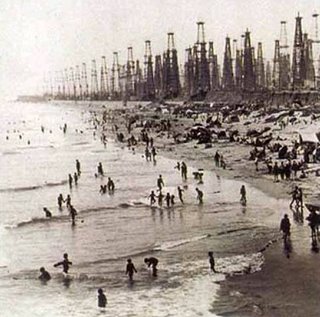
Among those who oppose this bill are two citizens who know coastal communities well and have studied the details of H.R. 4761 -- Enid Sisskin of Pensacola, Fla. and Esther McCormick of Nags Head, N.C.Last week, the U.S. House of Representatives passed H.R. 4761 (the "Deep Ocean Energy Resources Act"), which would expose virtually all of America's remaining scenic Atlantic, Pacific, and Gulf coastlines to oil and gas drilling.
The bill now goes to the U.S. Senate, where Florida Senator Bill Nelson has promised a filibuster to stop it. Senator Mel Martinez also says he will oppose the bill.
If, despite the senators' efforts, the bill should pass then huge drilling rigs the size of small cities will be permitted as close as 50 miles from Pensacola Beach. Pipelines and oil tankers could come even closer.
At that range, there is no practical barrier that would protect Pensacola Beach from multiple adverse environmental effects posed by the ordinary operation of drilling rigs, tankers, and piplines -- much less the risks of greater disasters brought on by hurricanes.
Among those who oppose this bill are two citizens who know coastal communities well and have studied the details of H.R. 4761 -- Enid Sisskin of Pensacola, Fla. and Esther McCormick of Nags Head, N.C. On June 14, they traveled to Washington and testified personally before the House Committee which was then considering the bill.
We are privileged to be able to bring you highlights from their prepared testimony, in three parts:







No comments:
Post a Comment